Last Updated on August 5, 2021
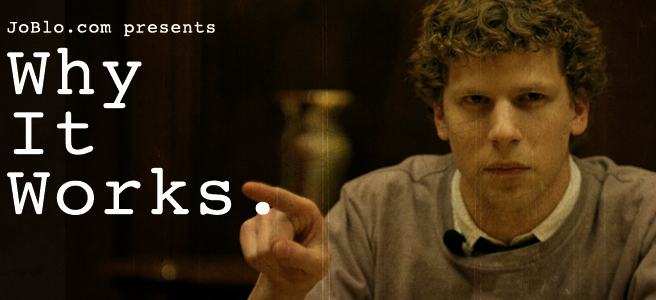 Why It Works is an ongoing column which breaks down some of the most acclaimed films in history and explores what makes them so iconic, groundbreaking, and memorable.
Why It Works is an ongoing column which breaks down some of the most acclaimed films in history and explores what makes them so iconic, groundbreaking, and memorable.
****SPOILERS AHEAD****
A Facebook movie? No. No way. Get out. A Facebook movie written by Aaron Sorkin, directed by David Fincher, starring Jesse Eisenberg, and scored by Trent Reznor and Atticus Ross? Okay, I’m listening. THE SOCIAL NETWORK takes a dark look at the founding of the most popular social networking site on the planet, paints its founder Mark Zuckerberg as a cold-blooded narcissist, and somehow gets away with it. Here’s why it works:
WHY WE LIKE THE CHARACTERS:
If just for the sheer vicarious joy of watching someone win an interaction, we love our smug, pedantic leads. Sheldon on The Big Bang Theory, House on House, Sherlock on Sherlock, Sherlock on Elementary, Sherlock in SHERLOCK HOLMES… you get the idea. Right from the opening scene, we see Mark’s holier than-thou-attitude and should take an instant disliking to him. What Sorkin does here is very clever, though. We watch Mark get dumped. Before we have a chance to fully form an opinion about the character, something happens to him that we can’t help but empathize with. Like it or not, we now at least understand where he’s coming from during the subsequent drunken blogging / Facemashing fiasco.
Our loyalty to Mark is only paper thin, though, and as we meet the rest of major players, we’re not sure who to rally behind. There are no bad guys here, and if there is one, it’s Mark himself. Eduardo Saverin, Divya and the Winklevii, and even Sean Parker are just regular guys trying to make a name for themselves. By not taking sides, Sorkin and company allow us to enjoy and relate to a scene featuring one of Mark’s adversaries as much as one featuring the antihero himself.
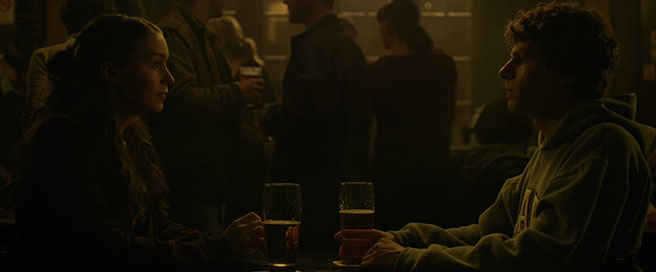 Appropriately enough, Rooney Mara would go on to play an antisocial hacker in Fincher’s next, albeit with more piercings and dragon tattoos.
Appropriately enough, Rooney Mara would go on to play an antisocial hacker in Fincher’s next, albeit with more piercings and dragon tattoos.
WHY WE CARE:
You know that friend you have, where, after seeing MASTER AND COMMANDER, he just goes, “pfft, rife with historical inaccuracy,” and doesn’t actually mention what he thought of the film as a film? Yeah, who invited that guy, anyway? Well, here is a film where the historical accuracy is a huge part of what makes the story so fascinating. Sorkin has stated that every moment in his script comes from the depositions on file… but also that no two testimonies are the same, so we’re presented with a puzzle of he said/she saids, and it’s on us to decide how the pieces fit.
Beyond the accuracy of the plot, though, THE SOCIAL NETWORK focuses on the primal aspects of the story. Most of us can’t relate to the trials and tribulations of needing more server space or figuring out how to best invest your latest million, but we can relate to heartache, betrayal, revenge, and frustration. From Mark’s dismissal by Erica, his relationship with Eduardo, and Sean and the Winklevii representing socially and physically all the things Mark wishes he could be, this is not a story of money and success but rather the struggle to overcome a deep internal frustration.
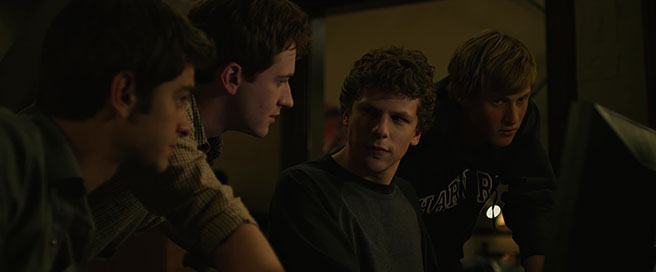 “Who are you going to send that to?” “Ah, just a couple of people. The question is: who are they going to send it to?”
“Who are you going to send that to?” “Ah, just a couple of people. The question is: who are they going to send it to?”
WHY WE’RE SATISFIED:
Imagine this movie was made in the 1990’s. The courtroom would be the centerpiece of the film. Alec Baldwin and Meg Ryan would play the hotheaded lawyers, and we’d be bored out of our minds within the first thirty minutes (sure, Fred Savage would make an adorable Mark Zuckerberg, but still). Here, we’re not in a courtroom, we’re in deposition rooms, which is already a breath of fresh air. The deposition scenes are kept sharp and to the point, and, perhaps most importantly, they are peppered throughout the film rather than bogging everything down in the final act. This is 95% a film of people sitting in rooms talking, so the pacing, dialogue, score, performances, mood, structure, and emotion all need to work together to keep the story barreling forward while still keeping us engaged and hitting all the right beats.
I mentioned above how the primal aspects of the story are what keeps THE SOCIAL NETWORK so engaging. The opening scene effectively portrays the entire Facebook journey to be about a girl. Mark refuses to accept failure in the romantic world, so he sets out to conquer the online world instead. In the final moments of the film, however, we see a billionaire sitting alone in the dark, refreshing his browser, hoping Erica Albright will accept his friend request. It’s always satisfying to see a do-gooder do good and ride off into the sunset, but it can be just as effective to see someone go about something the wrong way and fail as a result.
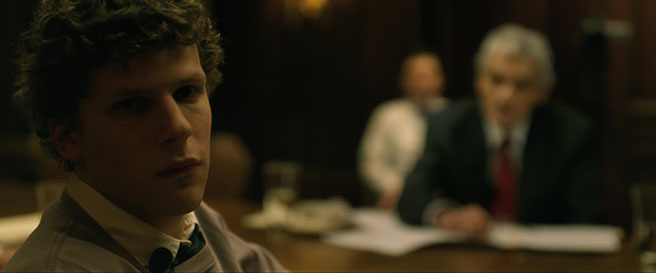 “You’re not an asshole, Mark. You’re just trying so hard to be.”
“You’re not an asshole, Mark. You’re just trying so hard to be.”
WHY WE REMEMBER:
“You write your snide bullshit from a dark room because that’s what the angry do nowadays.” Given that so much of THE SOCIAL NETWORK is based on contradicting testimonies, I give the film about as much factual credence as INGLOURIOUS BASTERDS. The real historical documentation here lies in the reflection that many of us live in a world where money and success overshadow emotion and relationships. It’s the current trend of, “I’m unhappy, so why don’t I go online and transfer that grief to someone else?” when really that practice is the emotional equivalent of seeking out one more quick fix to help get you through rehab. When the man who designed the greatest social networking tool since name tags can’t make a simple human connection in real life, something is seriously wrong. As any good film should, THE SOCIAL NETWORK serves as a reminder of who we are in the present day and what we can do to ourselves if we’re not careful.
Thoughts? What else worked for you? What didn’t? Strike back below!
If you have any movies you’d like to see put under the microscope, let us know below or send me an email at [email protected].



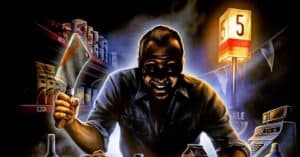
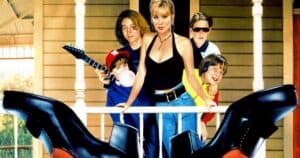
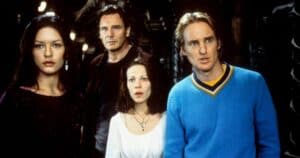



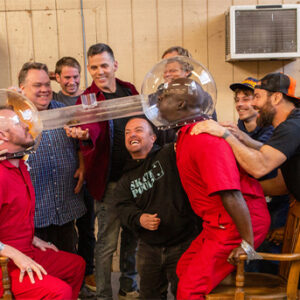
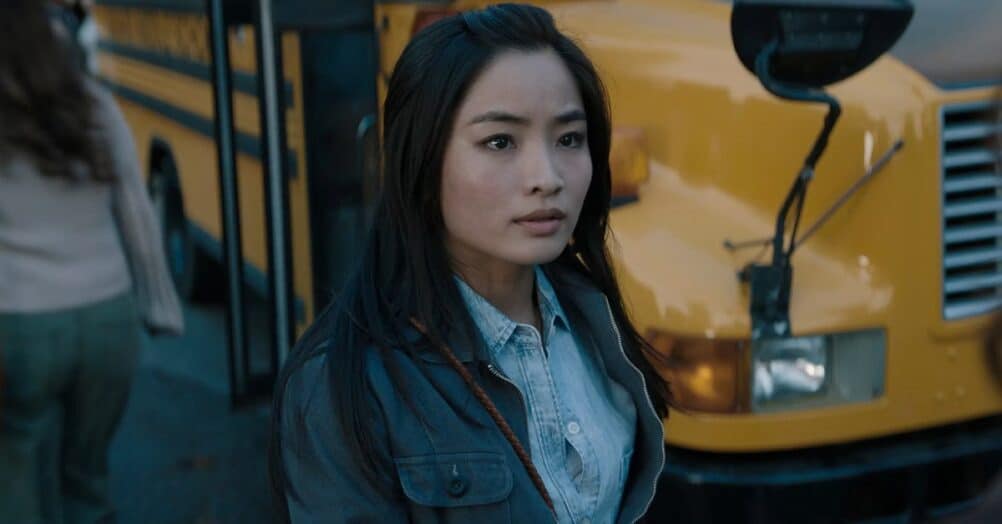

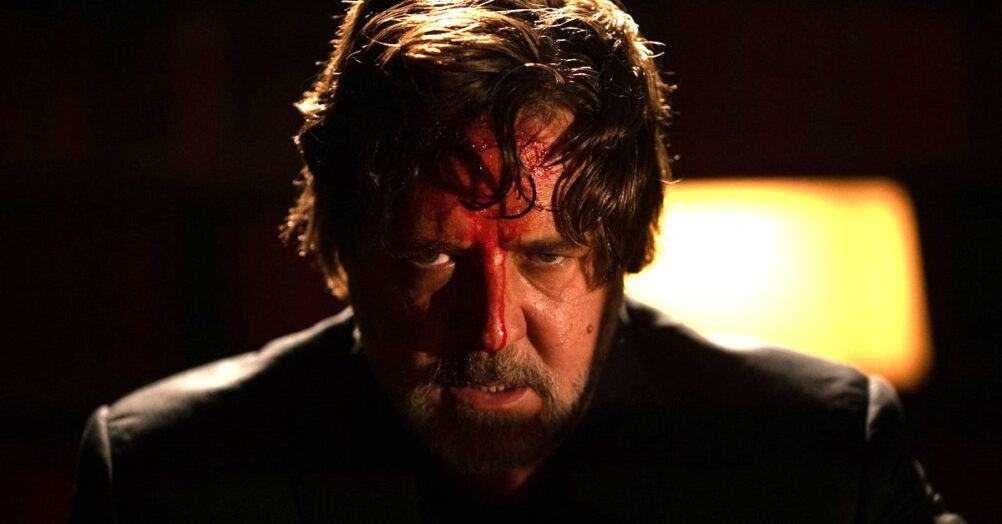
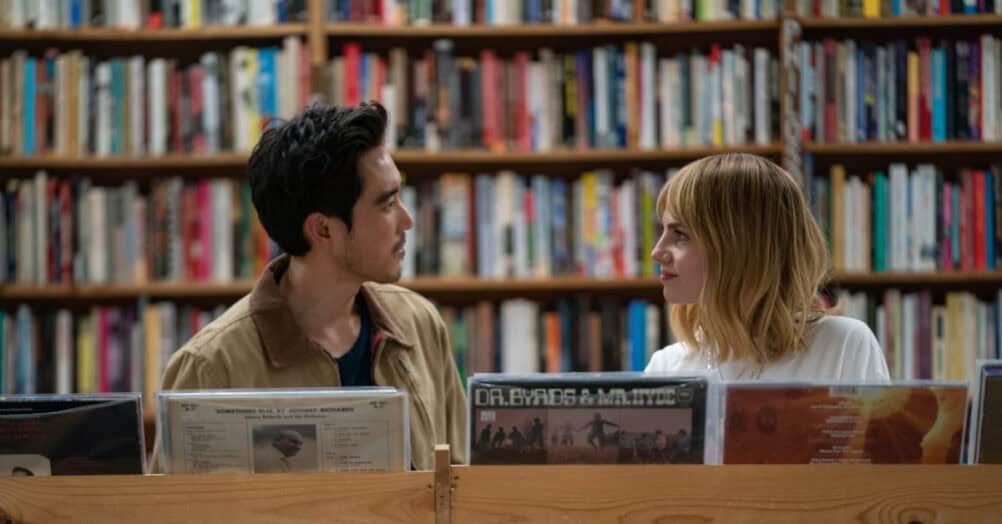
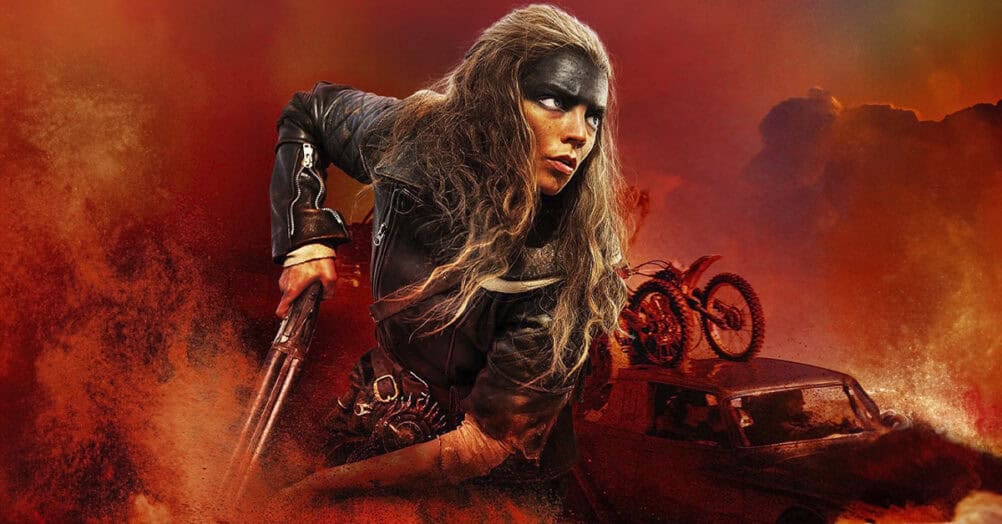
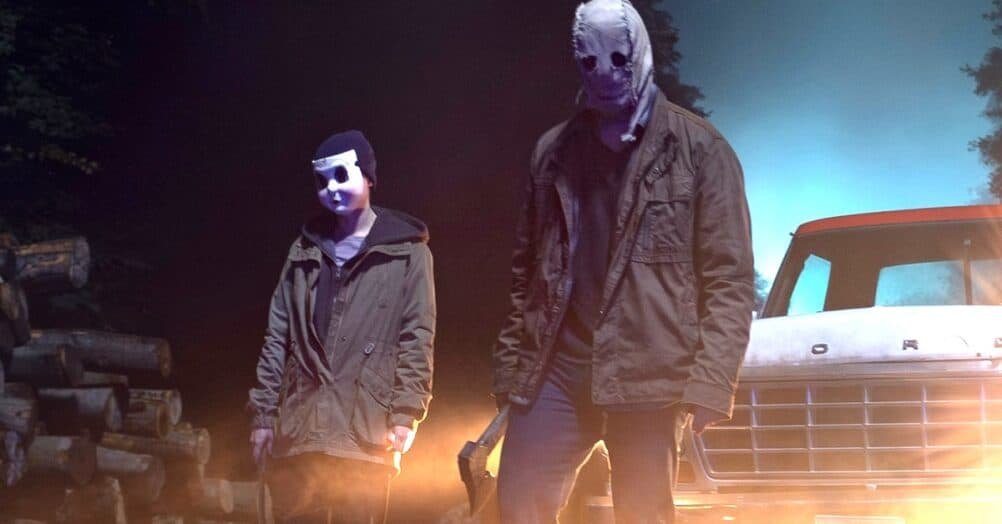
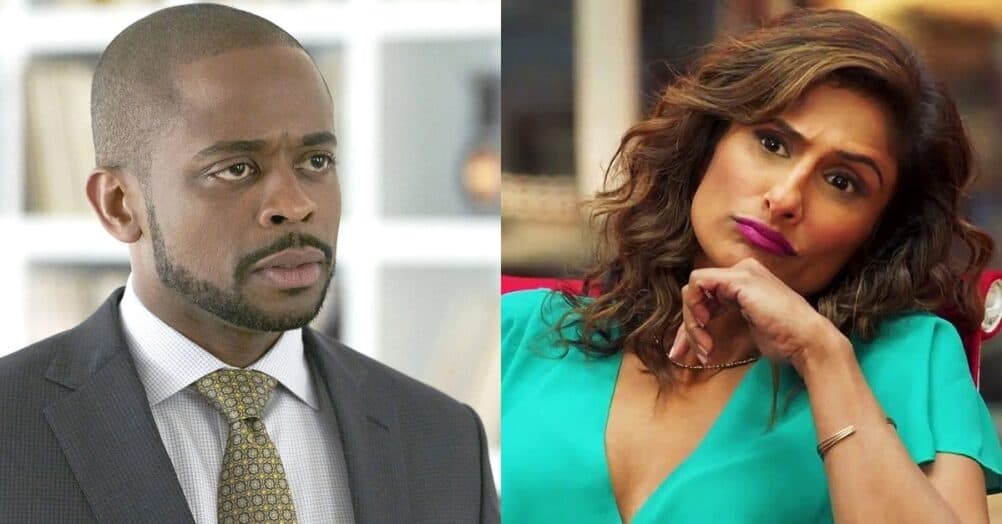
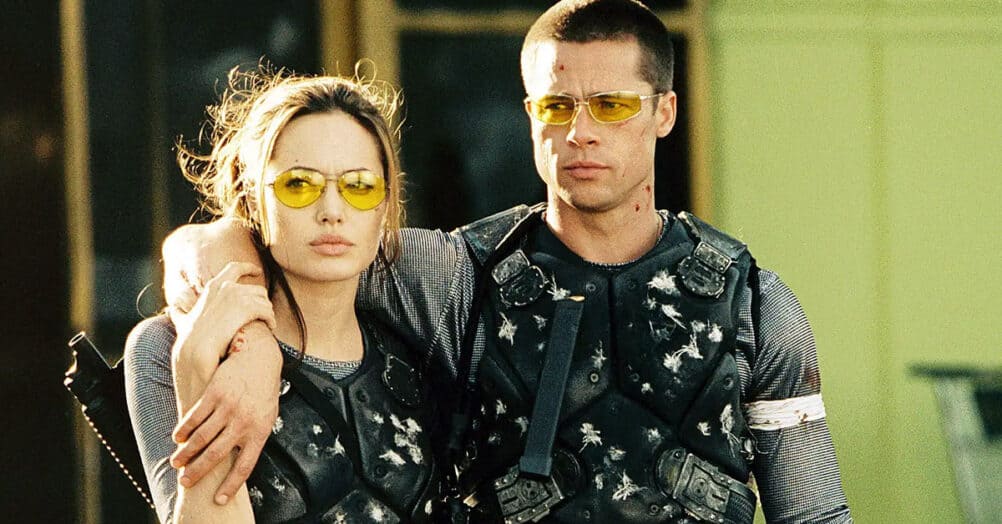
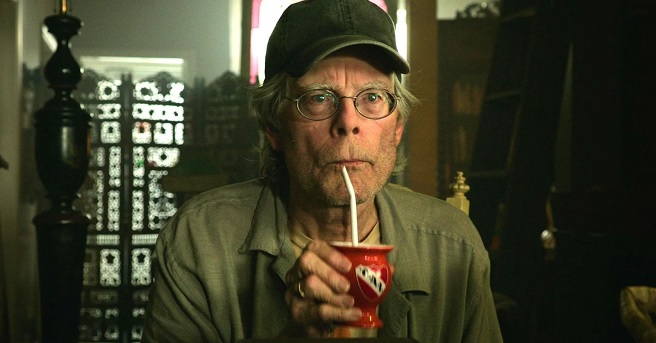
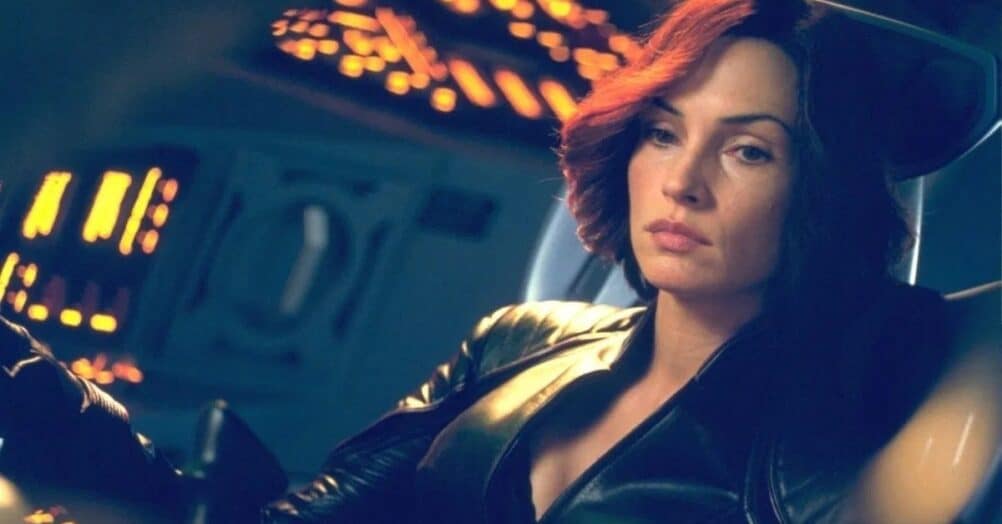
Follow the JOBLO MOVIE NETWORK
Follow us on YOUTUBE
Follow ARROW IN THE HEAD
Follow AITH on YOUTUBE